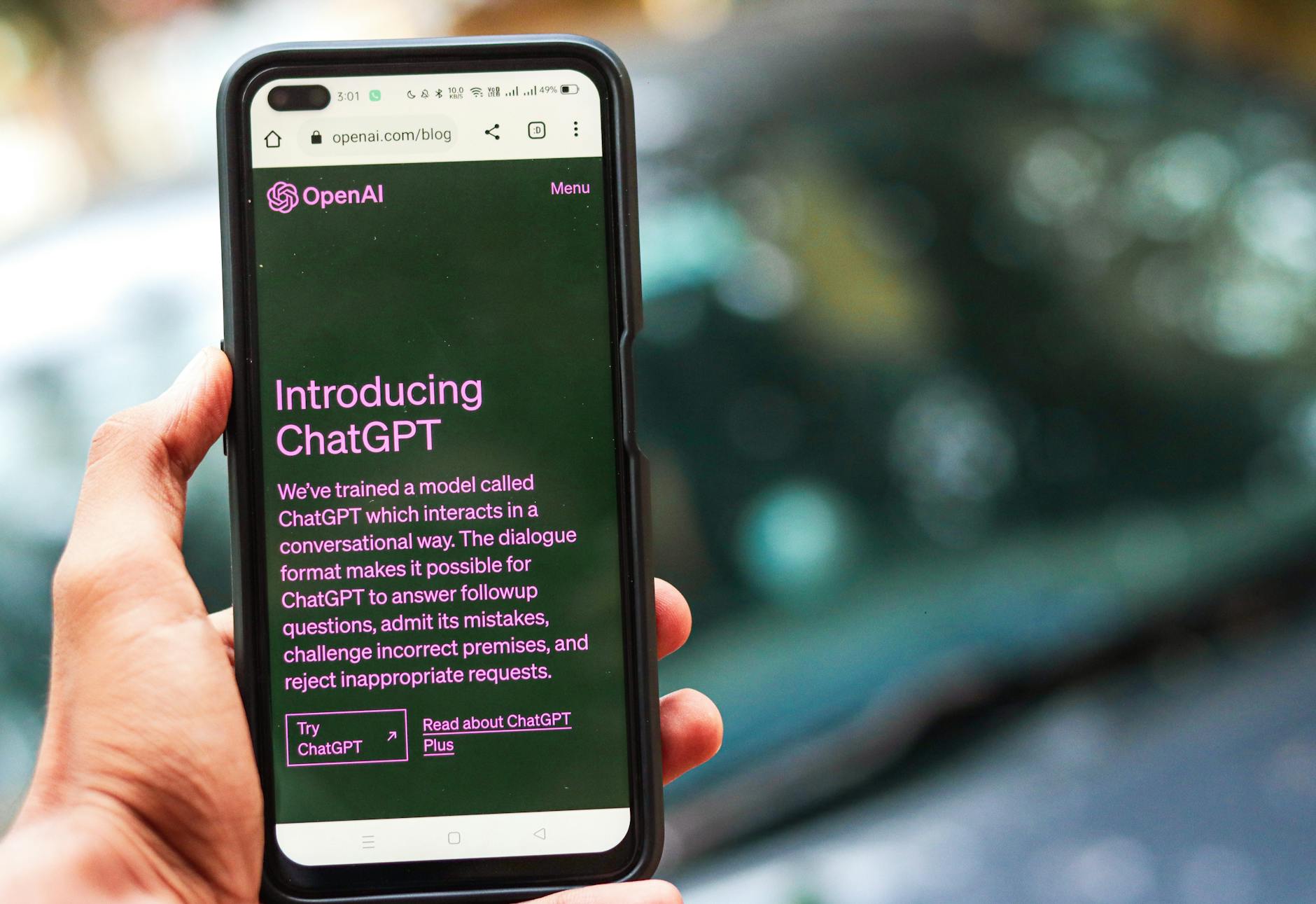Here's what changed: your reviews are no longer just for potential clients scrolling through Google. AI systems are reading them too — synthesizing your ratings, analyzing the language your clients use, and building a trust profile that determines whether your firm gets recommended or overlooked. A single negative review that once sat buried on page two can now surface as the defining detail in an AI-generated summary about your practice. And the response you wrote — or didn't write — becomes part of the story AI tells. For law firms that spent years building a strong reputation through word of mouth and referral networks, this is an uncomfortable shift. The rules of reputation management have expanded far beyond monitoring star ratings. Your reviews, your responses, your consistency across platforms, and the way your brand voice comes through in every public interaction are now trust signals that AI entities evaluate in real time. This article covers what reputation management actually looks like in the AI era — how reviews feed into digital trust, why your response strategy matters more than your review count, and how to protect your firm's brand integrity in a landscape where AI is always watching, always summarizing, and always deciding who to recommend next.
Attorneys face daily frustration with online reviews, where one negative post can threaten years of work. What makes this even harder is the rise of AI Entities reshaping how people find, judge, and select law firms. Zero-Click Behavior and the ongoing Content Visibility Crisis mean many clients never even reach your site. Instead, they place trust in AI-driven summaries or snippets, often without ever seeing your own words.
As a result, old methods of reputation management can't keep pace. Consumer Attention Loss, Emotional Dependency on AI, and shifting Digital Trust are shortening the path from discovery to decision. Your law firm's brand voice and trust signals may never see the light of day unless you address algorithmic gatekeeping and digital entity optimization head-on.
This series explains why staying visible, protecting professional brand integrity, and managing perception vs. reality in AI use now require practical, modern systems. You'll find out how to adapt reviews strategy, maintain trust-centric design, and use direct acquisition strategies to counteract organic obsolescence. For insights into the importance of online client testimonials for attorneys, you can explore how client feedback impacts firm growth and digital authority.
You’re not just protecting your reputation, you’re adjusting for AI as the first touchpoint and a compressed client journey. This is mission-critical for any law firm aiming for stability in today’s attention economy.
The Evolving Digital Trust Shift for Law Firms
Client trust has always anchored a law firm’s reputation, but rapid changes in technology are rewriting the rules. Today, clients form opinions about your firm before ever speaking to you, based on information they find through AI Entities, zero-click search results, and dynamic algorithmic platforms. As traditional search habits recede, you must rethink your approach to digital trust and professional brand integrity. The sections below outline how these shifts affect law firms, the risks of reduced content visibility, and methods to reinforce trust where clients now look first.
From Google to AI: The Collapse of Traditional Search Behavior

Photo by RDNE Stock project
Clients who once relied on organic Google searches now trust fast, AI-driven answers. This collapse of traditional search behavior alters the way new clients discover and assess law firms. Instead of scrolling ten blue links, they see:
- Quick “best of” summaries from AI Entities
- Star ratings and snippets
- Instant answers or lists, often with no clicks needed
AI as the First Touchpoint means perception is set before a visit to your website. If reviews and testimonials aren’t visible in these summary boxes, your own story is lost. The result is Client Journey Compression. Attention spans shrink, and Consumer Attention Loss becomes a daily hurdle.
Firms that still depend on keyword rankings or old web strategies see diminishing returns. The shift creates organic obsolescence, where even trusted firms lose online relevance. To compete, you need Digital Entity Optimization—an active process of managing every detail AI pulls from, not just your own website.
Zero-Click Behavior and Content Visibility Crisis
Zero-Click Behavior describes users getting answers directly in search results without visiting any site. This drives a real Content Visibility Crisis as law firm content stays hidden from potential clients unless it’s optimized for AI summaries and snippets.
Key impacts include:
- Less web traffic, even for high-ranked firms
- Reduced control over messaging, as algorithms curate the “facts”
- Heightened risk of incorrect summary data
- Greater need for direct acquisition strategies outside of search
Your reviews and testimonials may still exist online, but AI-driven decision making means your Law Firm Brand Voice can get filtered or distorted. The days of frictionless discovery through organic SEO are over, replaced by algorithmic gatekeeping where AI decides what shows up and what doesn’t.
To reduce risk, you have to focus on attention economy strategies. Build assets where clients already look so your reputation isn’t filtered out before your first point of contact. This calls for a practical, systematized review management process and a trust-centric design for all public data sources.
Establishing a Trust-Centric Brand Voice Online
In AI-fueled ecosystems, your law firm’s brand voice depends on visibility and trust. Law firms that treat reviews and testimonials as passive resources lose ground when AI Entities summarize firms based on third-party data.
A trust-centric approach begins by making sure your message, tone, and values stand out across every platform where clients might encounter your brand, often before they see your website. Here’s how you can approach this:
- Treat every review and testimonial as a managed asset, not background noise
- Consistently monitor, respond, and correct any mismatched or outdated content
- Invest in professional tone that shows expertise while remaining clear and accessible
- Use systems to capture real client stories and publish them where they matter
When curated, your client testimonials for attorneys can boost both authority and relatability in AI-driven listings. If you want a step-by-step on making testimonials work harder for you, see why standing out with online client testimonials for attorneys can change your digital authority.
Law firms need to bridge the gap between perception and reality in AI use. By addressing emotional dependency on AI and showing a strong, trust-centric digital voice, you match client expectations for a personalized experience. For broader guidance on improving online visibility for attorneys, review strategies that help clients find and trust you—not just with algorithms, but with real evidence of quality.
Professional brand integrity now rests on active engagement at every touchpoint, not passive presence. Control your digital identity with systems designed for today’s compressed client journeys and filtered attention spans.
Best Practices for Managing Online Reviews in the AI-First Era
In today’s AI-driven decision making, online reviews shape trust before clients ever reach out. For law firms, active management of these reviews is essential. You now face new challenges: digital trust shift, consumer attention loss, and algorithmic gatekeeping. The path from first impression to inquiry is shorter than ever, with clients forming opinions in seconds, often from AI-generated summaries. This makes direct acquisition strategies and a well-defined law firm brand voice more important. By using consistent review management, you can maintain brand integrity and meet the high expectations for personalized experience that clients now demand.
Proactive Review Generation and Monitoring

Photo by Mikhail Nilov
In the compressed client journey, waiting for organic reviews no longer delivers results. Instead, set systems to encourage honest feedback and monitor emerging platforms that AI Entities reference. These tactics help keep your firm top-of-mind, boost digital entity optimization, and improve visibility.
Focus your review generation process on these key actions:
- Ask promptly and personally: Request reviews soon after case closure, while the experience is fresh.
- Use direct prompts: Send branded links or QR codes to simplify the review process.
- Automate follow-ups: Light reminders can increase participation without causing friction.
- Verify all review sites: Track new and existing review sources, including platforms used by AI summary services.
Local SEO remains a foundation for frictionless discovery. Clients may never reach your website if you’re not featured in AI-generated results pulled from these listings. Take advantage of direct acquisition strategies and online tools that support your law firm's review portfolio. By partnering with experts who understand local search optimization, you can stay visible even as traditional methods recede. For a deeper look at optimization steps, explore how to build your attorney's digital footprint for local authority: Attorney digital presence.
Key reminders:
- The visibility crisis intensifies when reviews go unmonitored or fail to appear in critical snippets.
- Effective monitoring reduces gaps between perception and reality (AI use).
- Direct acquisition is now as important as organic presence to outpace organic obsolescence.
Responding to Reviews: Professional Brand Integrity in Action
Every response represents your firm’s professionalism. Responding with care, tone, and clarity strengthens brand integrity and signals trust-centric design. In a world shaped by AI as the first touchpoint, your replies may be quoted or summarized by algorithmic platforms. Avoid canned responses; instead, create replies aligned with your law firm brand voice.
Best practices for responding to reviews:
- Acknowledge the reviewer: Start with a thank you, showing the client was heard.
- Keep tone balanced and composed: Even when reviews are neutral or mixed, reinforce your firm’s commitment to service.
- Avoid over-sharing details: Protect client privacy and demonstrate professional boundaries.
- Be consistent: Use designated staff or templates, while personalizing language as needed.
Responding to both positive and negative feedback signals that you value every client. These interactions reinforce digital trust and help clients see your firm’s values in action. This also signals commitment to a personalized experience expectation, even when you’re not directly in control of the digital touchpoint.
For more ideas on how digital engagement shapes your brand, see: Digital Strategies for Lawyers.
Handling Negative Reviews in the Attention Economy
Negative reviews stand out in compressed digital journeys. If left unaddressed, single complaints can become central to AI summaries and third-party snippets, distorting perception vs. reality (AI use). Quick, respectful responses can prevent escalation and support your reputation.
Steps to manage negative reviews:
- Respond quickly and calmly: Time matters for AI-driven curation and consumer attention loss.
- Acknowledge the issue: Show empathy, even if the situation is unclear.
- Offer a private solution: Invite the reviewer to continue the conversation offline. This prevents public escalation and demonstrates transparency.
- Stay compliant: Avoid admitting legal fault or posting case details.
- Track recurring problems: Persistent issues may signal gaps in internal processes or communication that require action.
Handling bad reviews with care supports professional brand integrity and helps mitigate risks from digital entity optimization gone unchecked. Remember, AI Entities may amplify both positive and negative sentiments, so regular review management keeps perception aligned with your firm’s reality.
Adopt a systemized approach. You’re not just putting out fires—you’re building deeper trust and showing you care about real outcomes, not just image. If your law firm needs a more comprehensive review management process, consider working with specialists who understand the pressures of managing reputation in the AI era.
Optimizing Your Digital Entity for Trust and Visibility
Today's law firms operate in an era ruled by AI Entities and rapid-fire decision cycles. The first impression a client forms is often shaped long before personal contact occurs. This reality means your digital entity—not just your website or office—is the real front door. Optimizing trust signals and maximizing visibility are essential to meet new client expectations of accuracy and professionalism. In this section, you'll find current strategies to stand out in compressed, AI-driven client journeys and maintain control over how you are represented and selected.
AI as the First Touchpoint: Shaping the Initial Impression

Photo by Pixabay
The rise of AI as the first touchpoint means that algorithms now set the tone for your firm, often summarizing your reputation from third-party sources before clients ever speak with you. These algorithmic summaries power Zero-Click Behavior, where prospective clients make decisions without ever visiting your site.
Key repercussions for law firms include:
- Digital Trust Shift: Trust signals now come from summary boxes, ratings, and reviews. If those are not monitored, you lose direct input into client perception.
- Client Journey Compression: Time for brand storytelling shortens to a scan of AI-generated content snippets and ratings.
- Content Visibility Crisis: If your best testimonials are trapped on your website but ignored by AI Entities, your strongest assets are never seen.
- Algorithmic Gatekeeping: AI-driven decision making limits your narrative to what is indexed from accessible sources, not always from your controlled space.
Early impressions, often formed in seconds, can anchor client choices for or against your firm. If misinformation, negative reviews, or outdated details dominate these AI summaries, your brand voice is filtered, and professional brand integrity is at risk.
Elevating Attorney Digital Footprint for Maximum Impact
Optimizing your attorney digital footprint means overseeing every external signal that AI Entities might rank, summarize, or select as your firm’s calling card. Direct, practical actions guide how your practice is judged in the new attention economy.
Start by targeting these tactical steps to increase trust and visibility:
- Audit your presence across all review and directory platforms. Ensure that addresses, phone numbers, and business names exactly match across listings, as discrepancies can confuse both algorithms and clients.
- Curate your review portfolio. Highlight recent, accurate testimonials. Ask satisfied clients for feedback specifically on platforms most likely to appear in AI-generated results. Use clear requests and follow-ups that make participation easy.
- Systematically monitor what AI Entities display about your firm. Search your business name in incognito windows and review the auto-generated summaries, star ratings, and Q&A snippets that appear.
- Take control with structured content. Add schema markup and detailed business profiles that help algorithms read your information accurately.
- Respond to every review—positive or negative—promptly and with tone that matches your law firm brand voice. Public replies show active management and reinforce trust-centric design.
Regular, methodical review of how your digital entity appears ensures that first impressions are accurate and beneficial. Success here means stronger Professional Brand Integrity, reduced risk of Organic Obsolescence, and better alignment with Personalized Experience Expectations.
For attorneys seeking a detailed framework to build and sustain this presence, Lively Designs provides an entire resource on strengthening your attorney digital footprint. This guide delivers deeper insights tailored for law firms who want to sidestep Consumer Attention Loss and align with where clients already look for expertise, trust, and results.
Optimizing your digital entity is not just about visibility. It’s about maintaining control, reducing gaps between perception vs. reality (AI use), and anchoring your reputation in a landscape defined by attention scarcity and AI curation.
Creating Personalized Experiences and Trust in the Age of AI
Today's law firms face a new challenge—demonstrating authenticity and building trust when AI Entities filter, summarize, or even replace much of your direct client interaction. Clients expect personal attention, but behind every Zero-Click Behavior and algorithmic summary is a risk of losing the human story that made your reputation strong in the first place. To meet the growing Personalized Experience Expectation, law firms must take practical steps that blend digital efficiency with professional brand integrity while still ensuring every interaction feels authentic, responsive, and human.
Humanizing Your Brand Within AI-Driven Contexts

Photo by Sanket Mishra
AI Entities now set the stage for most client engagements, often serving as the first touchpoint. Your firm's brand voice and values are interpreted, summarized, and sometimes distorted by algorithms relying on data you may not fully control. To maintain human connection amid automation, start by reinforcing your firm’s story and expertise at every opportunity AI systems reference.
Effective ways to humanize your brand include:
- Showcase authentic client stories. Use verified testimonials and real-world examples to highlight your values. Structured reviews can cut through algorithmic gatekeeping.
- Maintain a consistent tone. Your firm’s personality should remain stable across all platforms, especially review responses that AI Entities quote or display.
- Present clear attorney profiles. Brief bios, professional photos, and straightforward language help bridge perception vs. reality (AI use) and support trust-centric design.
- Prioritize clarity and transparency. When algorithms condense your digital entity down to a single rating or snippet, ensure every public detail aligns with your true service quality.
- Monitor and update details regularly. Prevent content visibility crisis and organic obsolescence by keeping listings, reviews, and attorney credentials current.
For practical ways to blend approachability with digital credibility, consider developing user-friendly websites and content systems. These help foster frictionless discovery and encourage trust even before a prospect speaks with you. Learn more about how user-friendly websites for attorneys help build trust and drive leads.
Personal Touch: Balancing Automation and Human Connection
AI-driven decision making can introduce speed and scale but can also deepen consumer attention loss or spark emotional dependency on AI. Clients want quick answers, yet they remember genuine interactions. Striking the right balance between efficient automation and true connection requires thoughtful planning.
Consider these strategies for maintaining a personal touch in an AI-first environment:
- Automate routine communication, but personalize key moments.
- Set up automated reminders for feedback, then follow up with individualized thank-yous or clarifications.
- Use templated responses for common questions but add details relevant to the client’s unique situation.
- Respond quickly, always in your firm’s voice.
- Systems can flag and acknowledge new reviews right away, but a human reply convinces clients their input matters.
- Even in negative situations, a measured, direct response reassures others about your commitment and professionalism.
- Meet clients’ expectations for speed without losing depth.
- Comb through feedback for patterns. If AI Entities spotlight certain review themes, address them openly in your FAQ or on your site.
- Highlight improvements made in response to client comments, reinforcing a feedback-driven culture.
- Encourage staff to take ownership.
- Assign team members to monitor and reply to reviews, supporting professional brand integrity and consistency.
- Build training around your law firm brand voice, ensuring every client interaction upholds the same standards.
By managing this balance, you support digital trust shift while also reducing the risk of perception vs. reality (AI use). Clients feel heard and valued, reinforcing your firm’s reputation well beyond AI-driven summaries. For ongoing strategies and digital best practices, explore the latest articles on Lively Designs to see current trends and actionable guidance for law firms managing their digital footprint in an attention economy.
Conclusion
As you assess the future of your law firm's online reputation, one theme stands out: adaptation is required. AI Entities now shape trust before a client calls your office. Zero-Click Behavior accelerates Client Journey Compression, so your firm’s reputation is not just a presence; it’s a moving target, rewritten daily by algorithms and summarized for quick decisions. Online reviews, testimonials, and third-party data inform almost every major client choice. You must take clear, repeatable steps to protect and enhance how your firm is seen, both by people and by machines.

Photo by KATRIN BOLOVTSOVA
Managing online reviews and reputation now means building systems for Digital Entity Optimization, not just hoping good feedback bubbles to the top. You address gaps between perception vs. reality (AI use) by staying alert to every platform that AI Entities pull from. Your law firm brand voice should come through in every review response, bio, and rating. This sets expectations, corrects errors, and maintains Professional Brand Integrity, even when you cannot control the first touchpoint.
Key outcomes from putting best practices into action:
- Reduce Content Visibility Crisis: Your messaging surfaces where potential clients look, even during Zero-Click Behavior.
- Stay competitive: Quick, structured responses limit the risks of Organic Obsolescence by keeping your profile current and trusted.
- Balance automation with personalization: Use templates and automation for speed, but add human touches for trust.
- Minimize Consumer Attention Loss: Focused, concise content increases the odds that critical trust signals reach clients before AI filters out your message.
- Meet the Personalized Experience Expectation: Align every public touchpoint with trust-centric design and real client stories.
Strategic review management and continual monitoring combat Algorithmic Gatekeeping. Direct Acquisition Strategies replace passive waiting with active outreach, supporting Frictionless Discovery. Each element strengthens Digital Trust Shift, turning reputation risk into a stable source of business growth.
If you want an expanded view of how AI and zero-click trends are changing law firm visibility, explore the rise of the digital trust economy. For tactical advice on channels and advertising options that help you gather reviews and reach the right audience, you can review the best lawyer online advertising platforms.
A flexible system rewards you now and in the future. Attention economy changes are here to stay. By focusing on trust, clarity, and proactive engagement, your firm positions itself as the credible, visible, and stable choice clients need—even before they pick up the phone.












.webp)